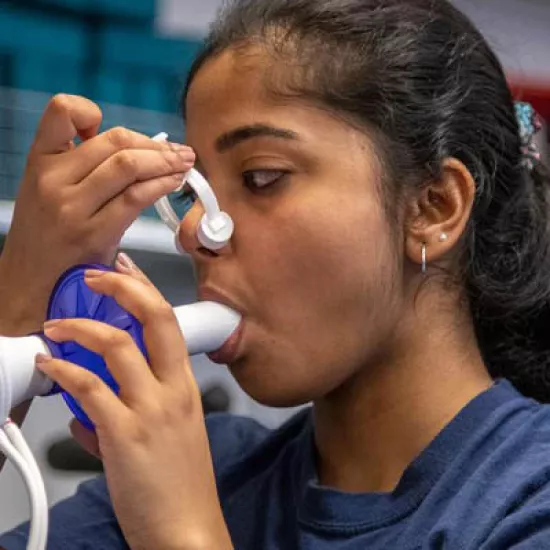
Comparative Physiology
Physiology is the study of living matter and its interaction between internal and external environments. It integrates physical and life sciences in order to understand body functions and the origins of disease in both plants and animals.
Honours Bachelor of Science
Program Plans
Plan your degree with these academic and co-curricular program overviews.
Tip Sheets
Learn more about further education, applying to jobs & more!
- Doctor
- Paramedic
- Wildlife Biologist
- Research Associate
- Biostatistician
Admission Requirements
Regional Requirements
Admissions RequirementsLife in Comparative Physiology
Buzz Around Campus
Sample Courses
Diversity of structure and function in animals at the tissue and organ system level. Principles and mechanisms of animal form and function are developed.
Principles of cardiovascular, renal, respiratory and digestive physiology of animals and their control by the neural and endocrine systems.
This course explores past climate, predictions of future climate, impacts of climate change on biological systems, and potentials for adaptation.
Other Programs to Consider

Biology for Health Sciences
This program focuses on areas of biological science that relate to the health of humans and will provide a strong foundation for students interested in pursuing a career in the health sciences

Ecology & Evolution
Ecology and evolution are sister disciplines, both encompassing the study of natural selection, life history, development, adaptation, population, and inheritance. Ecology and evolution are broad disciplines seeking to understand the origins, diversity, and distribution of organisms.

Biological Chemistry
Biological Chemistry deals with the chemical processes of and relating to living organisms. The program, with its solid core of chemistry, plus the required biology and biochemistry courses, provides an interesting and challenging interdisciplinary study experience. Biological Chemistry examines nature at the molecular level by using a combination of synthetic, inorganic, analytical and physical chemistry as well as the tools of molecular biology.



